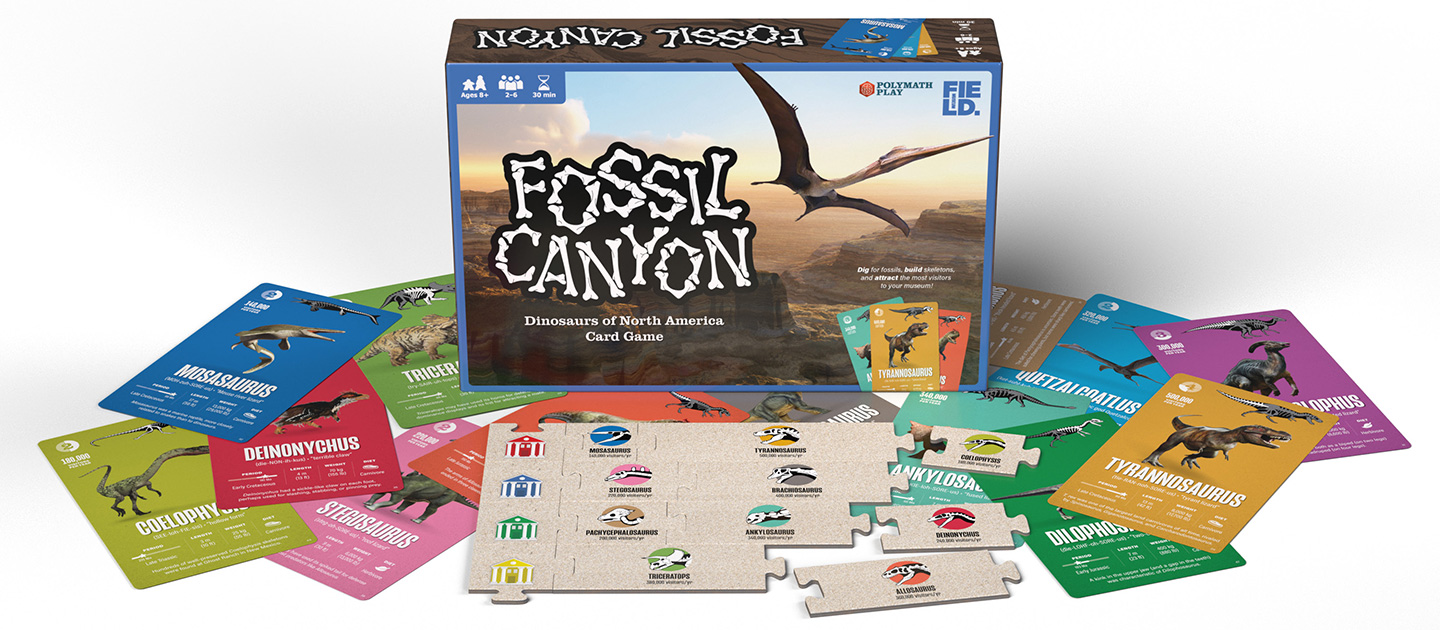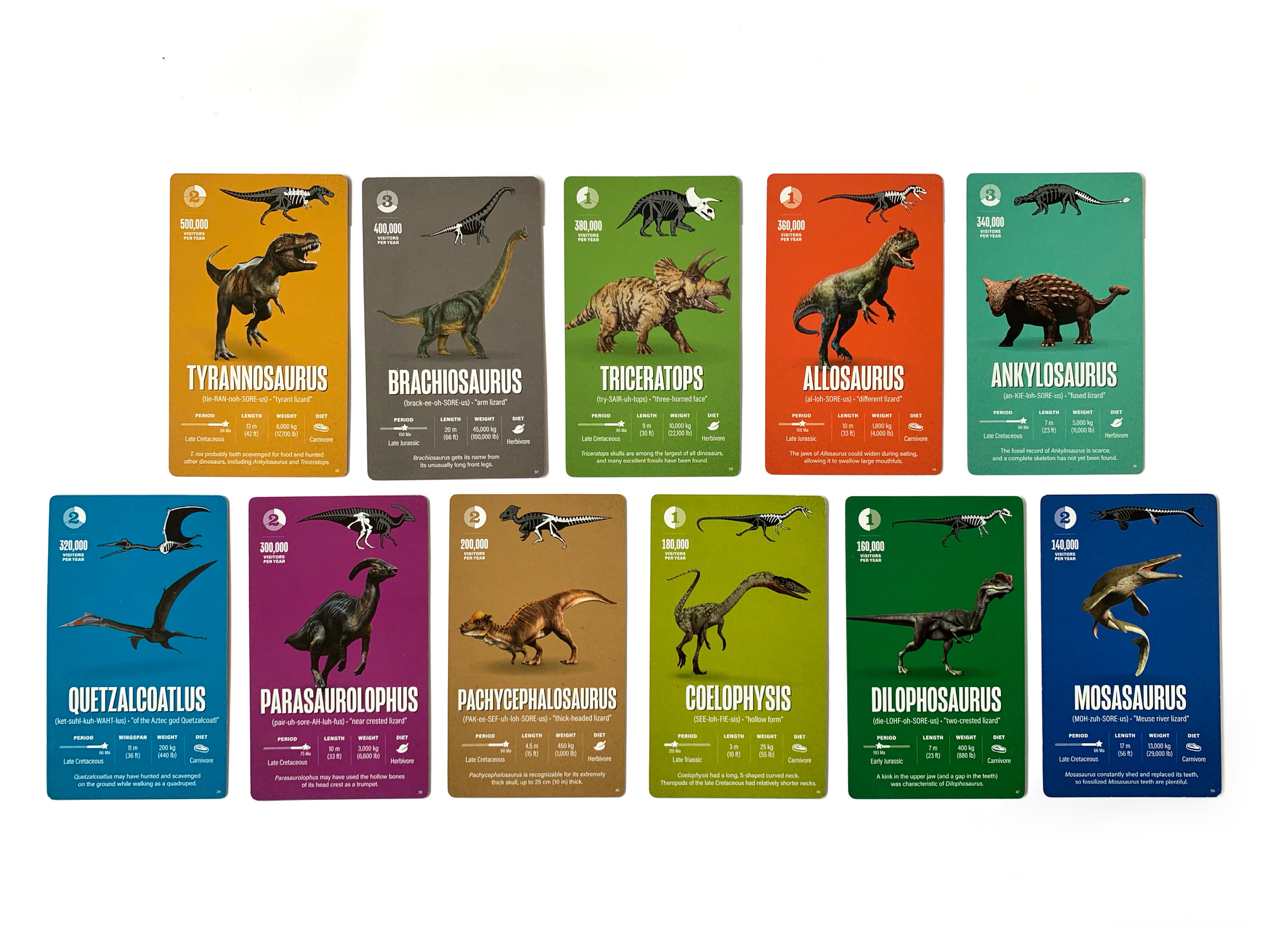Lynch’s Interest in Immersive Learning Extends to New Dinosaur Card Game
Professor Kevin Lynch is part of a team that created Fossil Canyon, an educational game for families

By the end of the 2019-20 school year, Erin and Patrick Lynch were having trouble connecting with their learning material. Due to the COVID-19 pandemic, the twins, then in kindergarten, were studying via Zoom and spending a lot of time at home.
To help their children engage with science lessons while the family spent time together, parents Kevin and Yuko Lynch had some ideas. When studying outer space, they built a Lego Saturn V rocket, made scale models of planets, and learned about gravity and orbits by swinging weights around on a string.
The next subject was dinosaurs. The family read books together on the topic, but son Patrick also began playing a paleontology game on a tablet. While the one-player video game didn’t encourage family bonding, it sparked an idea to create a dinosaur-based game the Lynch family could enjoy with each other.
The result is Fossil Canyon, a card game where players collect dinosaur fossils for their own museums. The colorful cards are complete with information about specific dinosaurs, allowing families to have fun together while the children – and adults – learn something along the way.

“Our goal in developing Fossil Canyon was to create an enjoyable family experience while allowing children to creatively engage with paleobiology,” said Kevin Lynch, professor of mechanical engineering at Northwestern and director of the Center for Robotics and Biosystems. “Paleobiology is not robotics, my specialty, but anything that gets kids, including my own kids, excited about science works for me.”
As an educator, Lynch is always interested in new ways to connect with people who are trying to learn. For example, Lynch and his students have developed “gamified” activities for their annual presentations during National Robotics Week at the Museum of Science and Industry. They created a video game that teaches about dynamics using the example of a gibbon swinging through trees. They also created a physical game to teach kids about the importance of friction in robotics. In that game, players stand on a board and try to slide it across the floor while keeping their feet on the board. The result is an intuitive, physical understanding of how cyclic normal and tangential forces, combined with the nonlinear effect of friction, can be used for locomotion.
“Public outreach is an important component of many of our research projects,” Kevin Lynch said. “Games can be a fun way to communicate our work to the public.”
Fossil Canyon was personal. The project began in June 2020 and the initial prototype was an old deck of cards with text taped on the front. The next version was somewhat more advanced, with stickers pasted onto blank cards.
At this point, as the children continued to enjoy the game, it became clear the idea could grow beyond the Lynch family. To take the game to the next level, Lynch contacted Nathan Martel, a graphic designer who had worked on the branding of the Center for Robotics and Biosystems. Martel created cards with drawings of each skeleton, realistic images of the dinosaurs, essential information about the animal, and even a pronunciation guide.
The next step involved the Field Museum, a favorite of the Lynch family. The Lynches contacted Akiko Shinya, the chief preparator of fossil vertebrates for the museum. Shinya serves as the project’s science adviser, making sure the science in the game is accurate, and interfaces with leadership at the museum, which is a partner in the project.

“If I hadn't talked with Nathan, this wouldn't have gone anywhere. And the project really became exciting for us when we connected with Akiko, whose enthusiasm is infectious,” Kevin Lynch said.
Yuko Lynch also plays a key role. She’s currently running the project and turning it into a company, working on the advertising and shipping. Kevin Lynch calls her the “glue” of the endeavor, and the key to making sure that the game becomes available to others.
Now that the nascent company – named Polymath Play – has finished a successful Kickstarter that will support the production of 2,000 copies, the game could end up in the gift shop at the Field Museum and similar institutions. And maybe it will find a way onto the shelves of big-box stores.
But that’s not the primary reason for the undertaking.
“Fossil Canyon allowed me to combine my personal interest in family games with my professional interest in education, all while spending time with my family and collaborating with the fantastic folks at the Field Museum,” Kevin Lynch said. “It was a fun creative outlet during a period when I think we all needed a little more fun in our lives.”